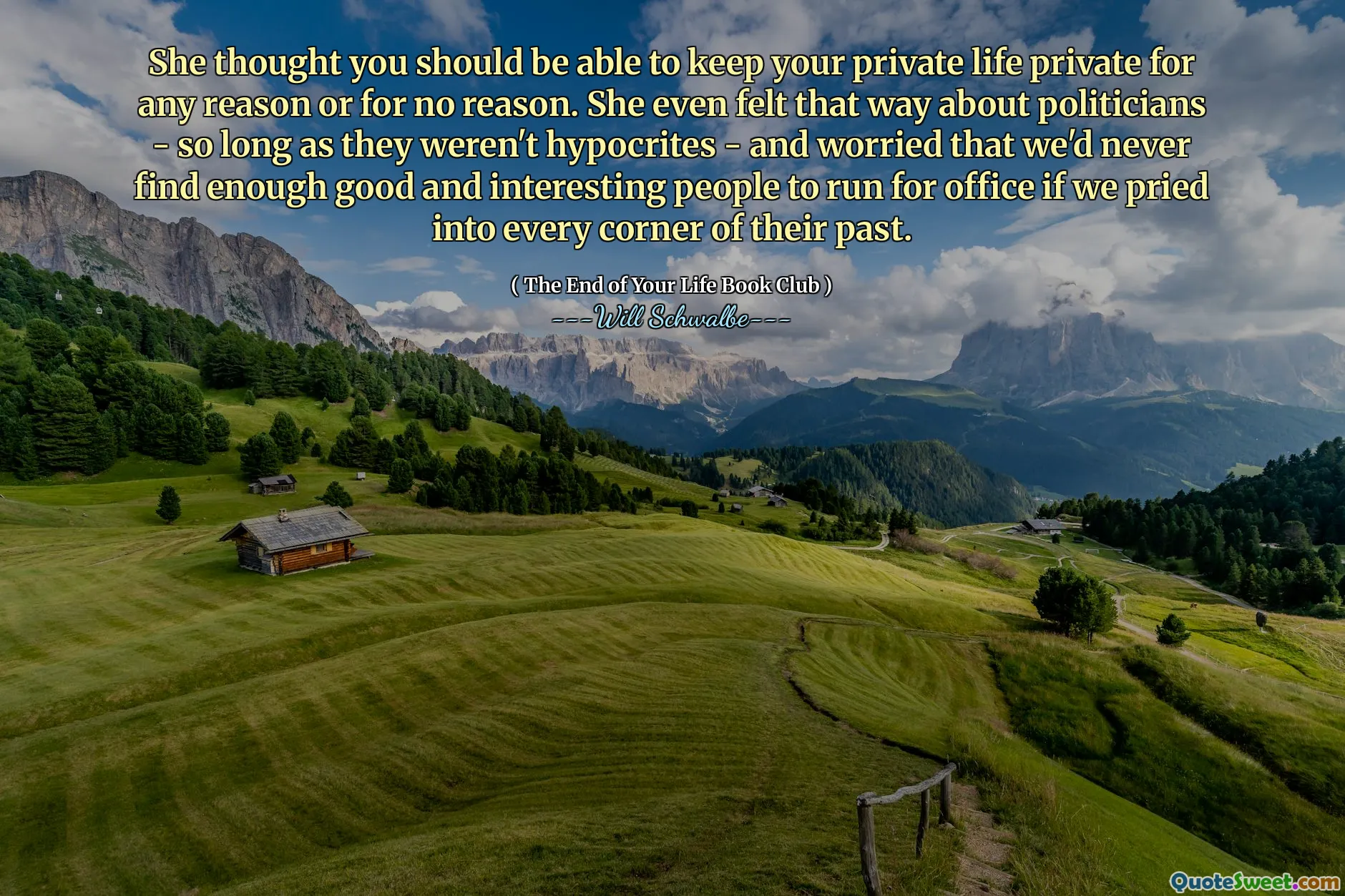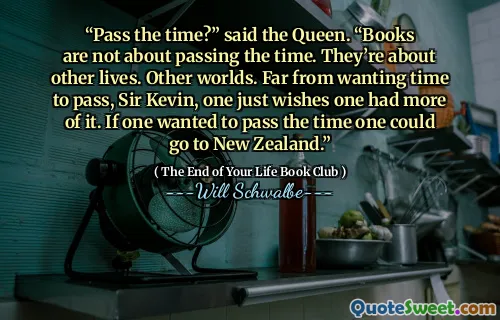
She thought you should be able to keep your private life private for any reason or for no reason. She even felt that way about politicians - so long as they weren't hypocrites - and worried that we'd never find enough good and interesting people to run for office if we pried into every corner of their past.
This quote touches on the fundamental value of personal privacy and the importance of respecting individuals' private lives, even in the age of pervasive transparency and public scrutiny. The idea that people should have the freedom to retain private aspects of their lives without justification underscores a belief in personal autonomy and dignity. It raises critical questions about the balance between transparency and privacy—especially regarding public figures like politicians—where the temptation to scrutinize their pasts might conflict with the principles of fairness and respect. The quote also hints at a risk: excessive emphasis on scrutinizing personal histories might deter capable, interesting, and genuine individuals from pursuing public service due to fear of judgment or exposure. This concern is particularly pertinent today, where social media often amplifies minor mistakes or past missteps, sometimes forever tainting reputations. The person in the quote advocates for a threshold of kindness and respect, arguing that if people are genuine and not hypocritical, they deserve the benefit of the doubt. Such a perspective encourages society to foster more nuanced judgments about character and morality rather than rushing to judgment based on incomplete or sensationalized information. It also invites reflection on the nature of authenticity and the degree to which public figures should be scrutinized. Overall, the quote invites us to consider whether the pursuit of transparency serves the public good or undermines the very individuals who might be best suited to serve due to fear of exposure. It ultimately champions a compassionate approach, emphasizing respect and trust over distrust and suspicion.










